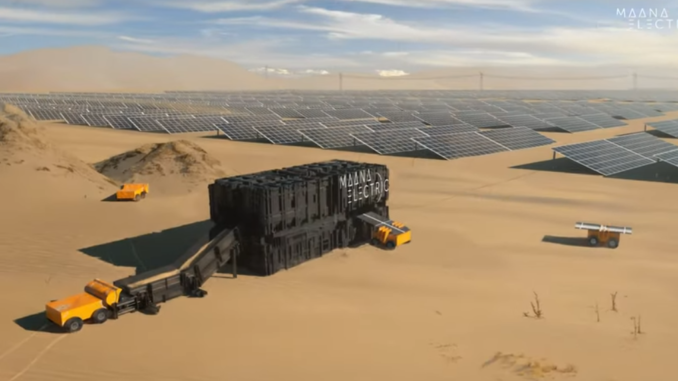
An old joke in engineering circles, or maybe about engineers, involved a schematic diagram of a complex system with every component clearly labeled in detail such that there was no doubt exactly what the various components were and what they did – except for one box drawn in the diagram that everything must go through, which was labeled, ‘blackbox’. The punchline? Next to the mystery component, a note pointing to the blackbox explained that, “Magic happens here”. Originally, the gist was that the engineer who designed the system had no idea how this part of the machine was going to work. The joke is decades old, so old that the term ‘blackbox’ became part of engineering jargon long ago, a term that came to mean, basically, “You don’t need to know what’s inside this box, you just need to know what goes in and what comes out”.
A new concept by a new company with a proprietary process (translation: a trade secret they’re not about to divulge to me or you) has recently been in the news, which brought to mind the blackbox gag. Maana Electric, based in Luxembourg, is the new company, and TerraBox is their new product. In a nutshell, Terrabox is a system that fits in standard shipping containers for straightforward transport to distant deserts, where sand is loaded into Terrabox and solar panels magically come out the other end. Their website succinctly states, “Sand goes in, solar panels come out. It’s as simple as that!”. Well, it’s not quite that simple, as they admit in the next sentence that electricity is also required to operate the “fully automated factory” in a box. It’s implied but not explicitly stated that the electricity powering the factory is provided by solar panels. As for what goes on inside Terrabox, the most they’ll say is, “Maana uses its proprietary In-Situ Resource Utilisation (ISRU) technologies developed for the space industry to revolutionise the way in which solar panels are produced, on Earth and in space.”
In-situ, of course, means that the solar panels will be manufactured on site at the location where they’ll be used. Thus, no supply chain to worry about. Huge cost-savings will be realized since neither the raw materials nor the end-product will require shipment to a consumer. Also, no toxic emissions from the manufacturing process or from transportation. Conventional manufacturing of solar panels involves the consumption of fossil fuels to power factories, obtain the raw materials, and transport the final product to the consumer. The supply chain is costly, inefficient, and generates pollution. TerraBox aims to put an end to all that by placing the factory in the desert where the raw materials are, which is also the sunny location where the solar panels will be used.
You may have noticed the statement above mentions that ISRU was developed for the space industry. Terrabox and its proprietary sytem has been developed by Maana Electric under contract with the European Space Agency (ESA) which ultimately wants to put automated factories on the moon to make solar panels out of lunar regolith. Maana Electric says that 60% of the technology in Terrabox will also be used in their lunar version. Regolith contains silicon, the same ingredient that desert sand contains, which is used to make solar panels.
If this sounds too good to be true (it did to me, at first), consider that the ESA is backing this company. The ESA are a bright group of people that wouldn’t invest time, money, and resources into a proprietary system unless they were very certain that it will work.
“Maana Electric Teaser” (2:50):
“What If We Covered the Sahara With Solar Panels?” (12:05):
Question Of The Night: Are there any synonyms for the word ‘thesaurus’?
